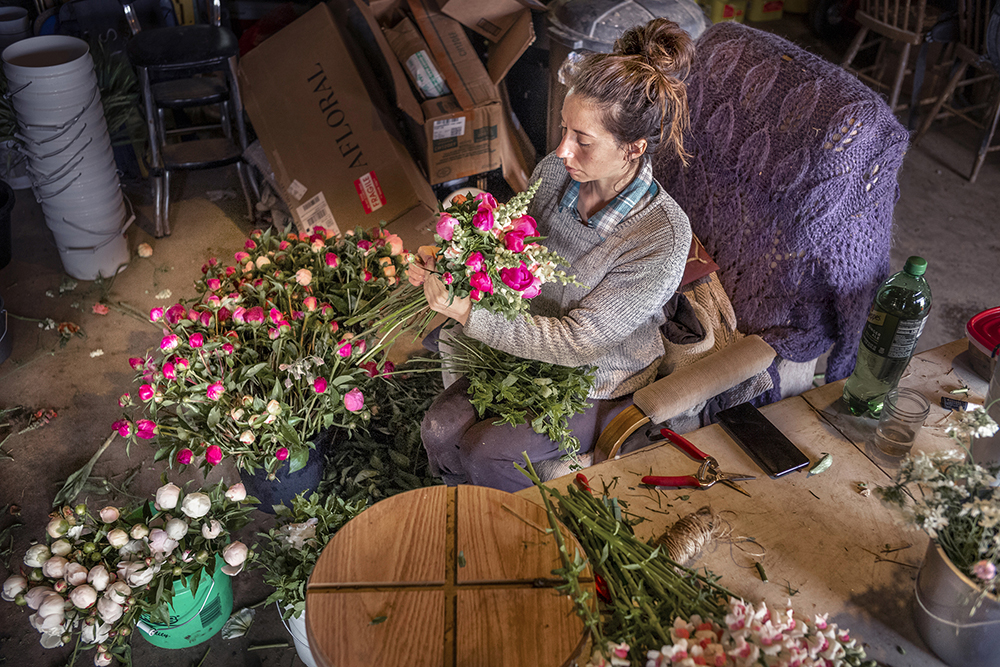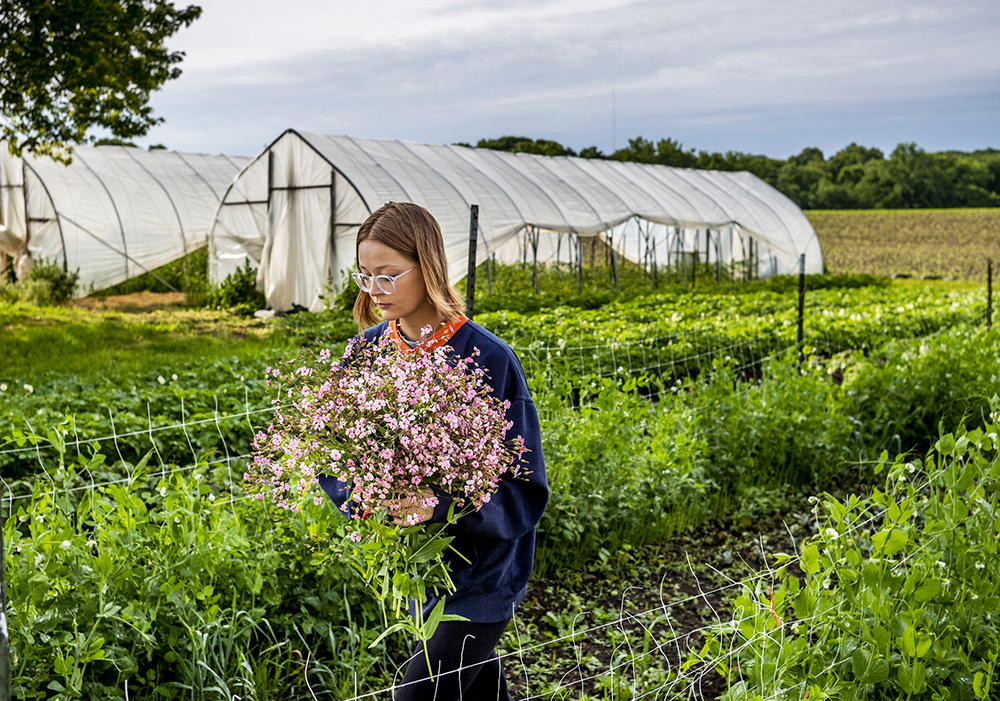
Working on arrangements for her CSA members and for sale at farmers markets, Kira Santiago is surrounded by the organic flowers she grows and sells from her East Peoria farm, Kira’s Flowers. (PHOTO BY DAVID ZALAZNIK)
“Farming near Chicago was something to consider, but people need to come back to this soil. Someone has to try,” she said, talking about the responsibility to restore and regenerate soil through organic practices.
Her concept was to open a flower shop with 100% Illinois-grown flowers, selling fresh flowers in season and dried flowers through winter.
The shop is yet to come, but today Santiago, 30, raises more than 100 varieties from bachelor buttons and snapdragons to larkspur and peonies on a farm outside East Peoria. She operates Kira’s Flowers selling at farmers markets and through enrollments in her CSA (community supported agriculture). She designs for weddings and events.
Her CSA is sold out for the remainder of this year but future enrollments are through her website, www.kirasflowers.com. Enrollment in a CSA typically means one payment in advance for a set number of weeks.
On a recent warm spring day, Santiago worked to prepare bouquets for her CSA members. She described her arrangements as performance art with an opening movement, progression, evolution, crescendo and decline. Her arrangements are interactive art that can change a viewer’s understanding of the natural world.
“My bouquets tell a story. They are characters with narratives,” said Santiago, fourth generation organic farmer in central Illinois.
One woman told Santiago her bouquet from Kira’s Flowers started with tulips but then the tulips changed into other flowers. In reality, the tulips progressed through a life cycle as tight buds opening and then culminating in a beautiful “crash” when the petals all fall and spread across a table.
“Sometimes the ‘crash’ is the most beautiful aspect of the bouquet,” Santiago said. “My bouquets tell a story with a sense of time and place.”
Pollinators from bees and butterflies to bats and moths love her flower fields.
Like most organic farms, her flower operation is labor intensive. She relies on interns for help. And each year, applicants for intern positions are predominantly college students majoring in art, philosophy or environmental studies.
“Artists are observant,” Santiago said. “All organic farming is based on observation. This is not driving a tractor back and forth across a field.”
This summer is the second stint for intern Taylor Peterson, 21, who recently graduated from Eureka College with a major in psychology and minor in environmental studies. She plans to start grad school in the fall in occupational therapy and believes gardening will be a major focus of her professional therapy.
“I try to live more sustainably,” Peterson said recently as she worked at Santiago’s farm. “If we use land efficiently and effectively, GMOs are not necessarily needed. If we rotate crops and focus on soil health, the soil will help take care of plants and healthy plants are less vulnerable to insects.”
She said, “Occupational therapy focuses on fine motor movements but a lot of new research shows how nature heals. Natural gardening can help heal.”
Peterson said nature-based occupational therapy uses nature before resorting to medications.
She expects to see major changes in health care with a greater emphasis on nature.
Cut flowers imported into the Unites States are often sprayed with significant amounts of chemical pesticides. The heavy use of toxins by the floral industry endangers pollinators, the ecosystem and farm workers in countries without the most basic EPA regulations. Imported flowers also have measurable amounts of pesticide residue.
“My bouquets tell a story with a sense of season, time and place,” Santiago said. “They are not stiff and lifeless.”
They’re often called “wildflower meadow bouquets.”


Recent Comments